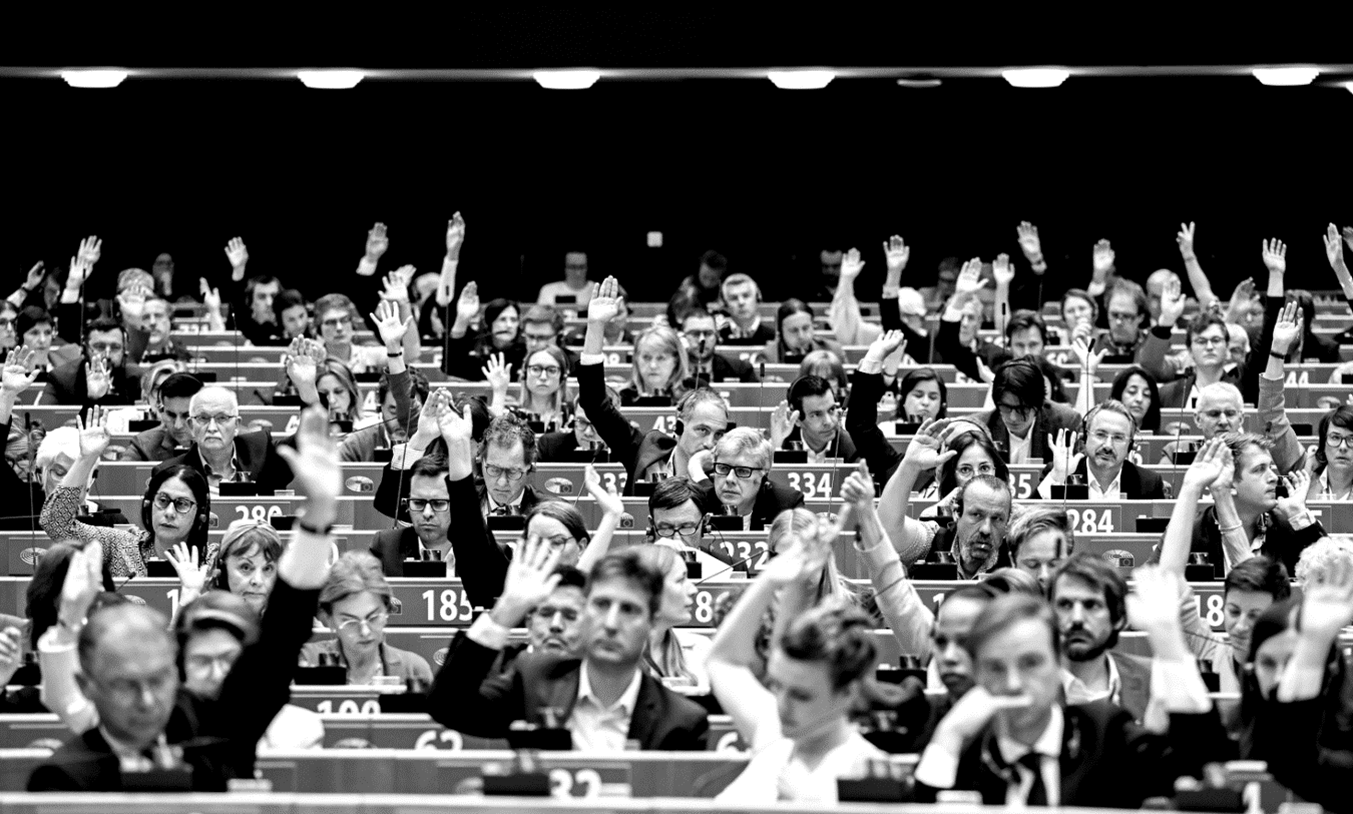Introduction
On 22 November, the European Parliament approved the report on proposals for amendment of the Treaties drafted by Spinelli Group members Guy Verhofstadt, Sven Simon, Gabriele Bischoff, Daniel Freund, and Helmut Scholz. The text received 291 votes in favour, 274 against and 44 abstentions.
The Treaty revision procedure pursuant to art. 48 TEU has thus formally been activated. In the next few days, the Council will submit a request for Treaty revision to the European Council, attaching the detailed draft of the proposed Treaty amendments. The European Council will then be required to decide by a simple majority (at least 14 governments out of 27) whether to convene a Convention to begin negotiating EU reform with representatives of the governments, national parliaments, Commission and European Parliament.
Despite some significant changes made to the text by the plenary of the Parliament, the very fact that the report has been approved opens up a hugely important opportunity for the federalist battle.

The draft reform of the Treaties: the definitive text approved by the Parliament
A new institutional balance
The final document, approved by the European Parliament, confirms much of the content of the text initially drawn up by the European Parliament’s Committee on Constitutional Affairs (AFCO).
First of all, the draft reform of the Treaties provides for the creation of a new institutional balance through a major strengthening of the European Parliament, which will take on a role as co-decision maker in a range of key areas, such as foreign policy, defence policy, cooperation in the area of criminal matters, coordination of member states’ economic and social policies, authorisation of international negotiations, and adoption of the multiannual financial framework. At the same time, the Council will no longer be able (almost) to make decisions unanimously. As a general rule, it will have to adopt decisions by qualified majority voting (applying the so-called double majority rule), and only in certain cases by a simple or an enhanced qualified majority. Clearly, these proposals aim to bring the European Union closer to a bicameral model, in other words, closer to a reality in which the representatives of European citizens and those of the member states decide together on the organisation’s policies.
Second, the final document confirms the reform of the procedure for appointing the Commission (to be renamed “Executive”). Under this procedure, the Parliament initially chooses a candidate for President (of the Union), who is then confirmed in the role by the European Council voting by simple majority. The aim of this reform is to strengthen the Spitzenkandidaten procedure and prevent any a priori vetoing of the chosen candidate by member states. The new commissioners (to be renamed “secretaries”), on the other hand, will be proposed by the President of the Union, but subsequently elected by the Parliament, without any a priori involvement of the national governments, unlike what happens today. Only at the end of the process will the European Council appoint the Commission/Executive en bloc, through a simple majority vote.
These changes are designed to strengthen the Union’s adherence to the parliamentary democracy model, as is the lowering of the majority necessary in order for a motion of censure (vote of no confidence) to be brought by the Parliament against the Commission/Executive, which from the current two-thirds will change to a simple majority. In this way, the Parliament’s political control over the entire Commission/Executive and individual commissioners/secretaries will be strengthened. In turn, it will fall to the President of the Union (and, ergo, of the Commission/Executive) to direct the European Council towards, it is hoped, a better balance of the different national priorities.
Finally, the European Parliament will be further strengthened by taking on functions that, previously, were mainly the province of the Commission: the right of legislative initiative and the right to launch infringement proceedings, before the Court of Justice, against member states that violate EU law.
Increased competences
The draft reform approved by the Parliament calls for a major extension of the EU’s competences: formally, common foreign and security policy, as well as health, industry and education, will become shared competences. It will also become easier to extend the jurisdiction of the European Public Prosecutor’s Office to new types of transnational crime. As far as environment policy is concerned, the EU’s role in the fight against climate change will be strengthened by the addition of specific references to this issue in art. 3 TEU (on the Union’s aims), and also by the introduction of the exclusive competence to conclude international agreements in the context of global negotiations on climate change.
More effective Union oversight of values violation
The infringement procedure for breaches of the Union’s values, provided for under art. 7 TEU and already triggered against Poland and Hungary, albeit ineffectively due to the inertia of many of the governments, will be profoundly transformed. First of all, a qualified majority as opposed to a unanimous vote will be sufficient to trigger it. More importantly, with the Court of Justice assigned the task of deciding whether a violation of values has actually occurred, the nature of the oversight will be judicial, and no longer political. The Council, deciding by qualified majority, will subsequently be able to apply sanctions, including suspension of European funds.
Approval of the reform by a majority vote
In what is one of the most crucial points for the success of the proposed reform, the Parliament strongly requests that the Reform Treaty be adopted by a majority of member states, specifically that it should come into force when ratified by only 4/5 of them. This solution would be a means of overcoming the unanimity rule that in the past has paralysed the ambitions of countries more open to greater integration, and allowed the minority to prevail. It therefore paves the way for a breakdown of the “confederal” framework in which the European Union is currently trapped, and raises the possibility that the member states might reorganise themselves into different circles of integration around, it is to be hoped, a federal core.

Weaknesses compared with AFCO’s initial Treaty revision proposal
The satisfaction that is being felt over the activation of the Treaty revision procedure must not be allowed to conceal the frustration at the fact that the proposal has, in some respects, been watered down during the process of its approval in plenary. As a result of vetoes and blackmail by some political groups, the final text, as amended by the Parliament, lacks some important reforms initially requested by AFCO.
The most important example of this weakening of the text is the cancellation of the amendment that would have given the Union its own autonomous fiscal capacity. Indeed, article 311 TFEU, which sets out the rules governing the own resources framework of the EU budget, retains both the unanimity rule in the Council, and the requirement for subsequent approval by all member states according to their own internal procedures. As a result, it will not be possible for the Union to easily acquire new common debt, or new stable revenues for its budget, since each government (and each national parliament) will retain the power to exercise a veto. The rejection of this amendment is a serious setback, given the systematic importance of fiscal capacity development in the creation of federal states; after all, it is thanks to its power to collect resources that a federation is able to fund its policies autonomously. In other words, fiscal competence is functional to the development of Kompetenz-Kompetenz and therefore to the Union’s ability to be self-determining, emancipating itself from the member states. Another important weakness is due to the removal of the proposed references to pan-European referenda, potentially key instruments that would have allowed the citizens themselves to take binding decisions concerning the development of EU policies, and to approve future Treaty changes by majority of the popular vote.

Why the vote in the European Parliament has nevertheless opened a window of opportunity in the battle for a federal Europe
The vote on 22 November was the successful conclusion of an initial step in the Union’s reform process. The European Parliament, successfully taking up the baton from the Conference on the Future of Europe, put forward an ambitious proposal for reform of the Treaties that incorporates most of the citizens’ proposals, including those of European federalists. Obviously, the federal direction taken by the project will need to be better clarified, especially in view of the last-minute elimination of the request for an EU fiscal capacity. Nevertheless, the reform proposed by the Parliament clearly aims to give the Union greater sovereignty and democracy.
Given the important transformations that this reform would entail, it is important to reflect upon the reasons why the text submitted to the plenary session was approved with a smaller majority than the one that supported the original text drawn up by AFCO. To a large extent, this can be attributed to the wish to include divisive political issues in the report, which created divisions between the political forces; in other words, more importance was attached to ideological positions than to the construction of the institutional tools that must be in place in order to be able to actually implement policies. In the context of the fight to build a more democratic Europe that is better equipped to act, all the pro-European forces have to be able to recognise the correct priorities.
To do this, they have to understand the need to unite in pursuit of the shared objective — strengthening our common home —, and the need to avoid falling out over identity issues even before they have created the tools necessary to truly to wage the battles at European level in which they all believe. The need to make an effort in this sense has become more urgent than ever, given that, faced with the now real possibility of federal reform of the Treaties being undertaken by a majority of countries, the Eurosceptic forces and those substantially in favour of maintaining the status quo have responded with a united front. The evolution they fear is precisely what federalists are hoping for, namely that starting work on the revision of the European Treaties will set in motion a process with the capacity to overturn the political and legal balances that currently govern the Union, and thus split governments and political forces into two camps, those in favour of a federal leap and those against.
What is more, the weakening of the text should not be perceived as a definitive defeat or an irreparable mistake that could undermine the significance of the European Parliament’s vote. In fact, the parliamentary work that came to an end on 22 November has left three important legacies:
- the Treaty revision procedure has been formally activated: this means that the states will be obliged to state their positions on the Parliament’s proposals and on the need to advance European integration;
- the European Parliament has strongly affirmed the need for a reform of the Treaties with the agreement of a majority, and therefore the need to overcome the current legal framework based on unanimity;
- the proposed Treaty amendments are a movement towards greater European sovereignty on decisive issues; whether or not the reform actually leads to the creation of a European federation will depend essentially on the outcome of the negotiations and, above all, on the ability of the participating states to ensure that the future Union has its own fiscal capacity.
The forces in favour of the reform now need to put pressure on the governments, so that they do not immediately snuff out the possibility of opening the Convention. The European Council vote on the convening of the Convention is, in effect, the last step governed by the existing Treaties’ “confederal” rules: once the Convention has been opened it will be easier to arrive at the hoped-for break with the existing legal framework, so that the most ambitious states can proceed with transforming the Union in accordance with AFCO’s initial proposal for Treaty change.

